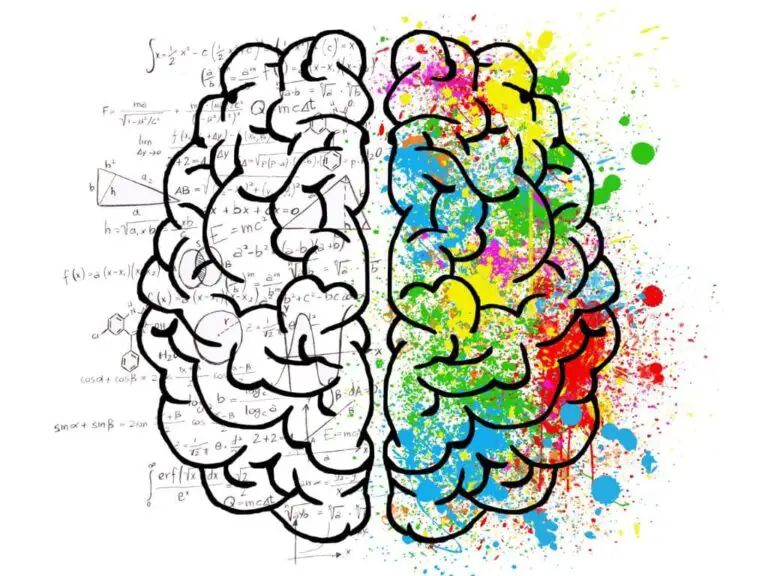Why Are Intellectual Activities Important?
The human mind is a remarkable thing. As we age, keeping our minds active and engaged through intellectual activities becomes increasingly crucial for cognitive health and overall well-being.
Why are intellectual activities important? Intellectual activities are important as they stimulate cognitive functions, maintain mental sharpness, and improve wellbeing. They help acquire new skills, enhance self-confidence, and promote a sense of achievement. Regular intellectual engagement reduces the risk of cognitive decline and dementia, while fostering learning, growth, and adaptability, thereby enriching overall quality of life.
Intellectual activities that stimulate the brain can help seniors maintain and even improve mental sharpness. Being intellectually curious and engaged can also add joy, purpose, and quality of life in our later years.

Let’s explore why intellectual activities are so important as we get older.
What are Intellectual Activities?
Intellectual activities refer to human activities that involve mental effort, such as reading, writing, problem-solving, and creativity. They are distinguished by their requirement for cognition and intentionality, challenging individuals to use their intelligence and knowledge to achieve a particular outcome.
Intellectual activities often play a crucial role in personal development and lifelong learning. Intellectual activities are activities that engage the brain through thinking, learning, creating, and problem solving.
What are Some Examples of Intellectual Activities?
Listed below are examples of intellectual activities.
- Learning something new like a language, instrument, craft, or skill
- Reading books, newspapers, magazines
- Playing mind-stimulating games like chess, crossword puzzles, Sudoku
- Writing stories, poetry, memoirs
- Taking or teaching a class
- Learning to use technology like computers and smartphones
- Doing puzzles and brain teasers
- Engaging in creative hobbies like painting, photography, gardening
- Having thought-provoking discussions on art, politics, philosophy
These activities exercise important cognitive functions like memory, logic, attention, reasoning, and flexibility. They force our brains to make new connections and think in novel ways.
What are the Benefits of Intellectual Activities?
Regular intellectual stimulation provides many benefits for the aging brain and mind:
- Helps maintain and improve cognitive abilities like memory, processing speed, and problem-solving
- Provides mental exercise to build up “cognitive reserve”
- Stimulates production of brain-derived neurotrophic factor, which supports brain cell health
- Wards off cognitive decline and dementia
- Enhances learning and neurotransmitter function
- Provides feelings of productivity and purpose
- Promotes curiosity, open-mindedness, creativity
- Allows us to gain new perspectives, knowledge, and skills
- Helps us adapt to change and novelty
- Improves self-confidence and self-worth
- Reduces stress and improves mood
Clearly, intellectual engagement provides significant short-term and long-term benefits for cognitive health and quality of life.
How do Intellectual Activities Help You Learn and Grow?
Intellectual activities facilitate continuous learning and growth throughout life. As we age, we have a natural desire to keep expanding our minds and developing skills rather than stagnating. Intellectual pursuits provide enriching mental nourishment.
Learning something new forces our brains to form new connections and neural pathways. It builds up cognitive reserve to help offset any age-related decline. Acquiring new knowledge and skills leads to a sense of accomplishment and self-worth. It allows us to apply wisdom from life experience in new ways. We can also experience the joy of sharing knowledge and skills with others.
Intellectual activities exercise our critical thinking skills. Analyzing information, weighing options, and solving challenging problems all contribute to better cognitive function. Refining these thinking skills allows us to make sharper decisions in all areas of life.
What are Some Ways to Stay Intellectually Engaged?
There are endless ways seniors can stay intellectually active and engaged:
- Take a class on an interesting topic
- Join a book club to discuss diverse literature
- Learn a new language like Spanish or French
- Try creative outlets like painting, photography, or writing
- Do crossword puzzles and challenging Sudoku
- Play brain-training games like Lumosity
- Have debates about current events and politics
- Research a topic you’re curious about
- Travel to learn about new cultures and gain fresh perspectives
- Use technology like computers, smartphones, and apps
- Attend lectures at a university or community center
The key is to pick activities that are both intellectually stimulating and enjoyable. Having variety keeps our brains nimble and helps us find more joy in the learning process.
Why is it Important to Be Curious and Open-Minded?
For older adults, maintaining intellectual curiosity and an open mind are key. Curiosity fuels the desire to continuously learn new things, which promotes cognitive health. Having an open, flexible mind allows us to gain fresh perspectives and see the world with a sense of wonder.
Asking questions and exploring topics that fascinate us can lead to fulfilling learning experiences. Being receptive to new ideas and ways of thinking enhances adaptability, crucial as we age. Challenging our own long-held assumptions exercises our critical thinking skills.
With life experience often comes fixed mindsets and rigid thinking. But staying open and curious counteracts this decline. It helps create more neural connections and cognitive flexibility. Leaving our comfort zones to learn new skills makes life feel more meaningful and exciting.
How Can Intellectual Activities Improve Your Overall Well-Being?
Engaging in regular intellectual activities provides significant benefits beyond cognitive health. Creative and mentally stimulating pursuits often lead to an enhanced sense of well-being and life satisfaction.
Learning new skills boosts self-confidence and self-worth, as we prove to ourselves that we can acquire knowledge at any age. Mastering challenges provides a profound sense of achievement and purpose. Intellectual activities also help provide focus, structure, and meaning to daily life during retirement.
Creative activities allow us to tap into right-brain functions like imagination, appreciation of beauty, and mindfulness. Expressing ourselves artistically enhances overall brain health and emotional well-being.
Discussion-based pursuits allow for rich social connection through sharing ideas. Interacting with others who enjoy intellectual engagement creates a mentally stimulating community. Group activities reduce isolation and loneliness.
What are the Long-Term Benefits of Intellectual Activities?
Studies show that engaging in regular intellectual and creative activities provides long-lasting cognitive benefits, often improving mental function and quality of life for many years.
Challenging the mind seems to build resilience against cognitive decline. It increases cognitive reserve and may offset age-related changes in the brain. People who are mentally active tend to experience less memory loss and dementia as they get older.
Being intellectually engaged also adds meaning, enrichment, and enjoyment to the later years of life. An alert, vibrant mind contributes to independence and a high quality of life long into old age. Mental sharpness allows seniors to share their wisdom and talents with younger generations.
Lifelong learning and creativity are keys to healthy aging. The brain is incredibly plastic and wants to keep growing. An intellectually active lifestyle can help seniors achieve optimal mental and cognitive health as well as an overall sense of purpose and well-being.
Frequently Asked Questions
-
Why are intellectual activities important?
Learning is a key component of intellectual wellness. To be more well-rounded, it’s essential to try new ideas. You should be curious. It is vital to be curious because curiosity encourages you and other people to explore new ideas and help you understand the relationships between you and them.
-
How can you improve and maintain intellectual wellness?
You can use games to exercise your brain, improve your working and long-term memory. It takes a lot of brainpower to solve puzzles and find words within patterns. These activities will help you maintain or build intellectual health.
-
What is intellectual health example?
Examples of intellectual health include learning a foreign language. For fun, reading. Puzzles like Sudoku, crosswords or jigsaws are great for having fun. You can play a card or board game.
-
What is intellectual self care?
You can read a book or listen to a podcast. Or even go on a Wikipedia dive into how your favorite television show was made. If you don’t have the opportunity to socialize in real life, it can be a great way for your brain to feel more accomplished and sharp.
-
What is the most important skill to have as an intellectually healthy person?
To reap the intellectual benefits of mental wellness, communication is an important skill.
-
What is an intellectual activity?
This definition defines intellectual activity as a functioning mind that is meaningful (intelligent thought). This definition allows for both the expression and study of intelligent human thought.
-
Which of the following is an example of intellectual activities?
Intellectually stimulating activities include reading, games, reminiscing and watching television history. Just like your body, it is important to exercise and nourish the mind.
-
What are mental and intellectual activities?
Engaging in creative and intellectual activities is a key component of mental and intellectual health. It also encourages the development and stimulation of knowledge and skills. This involves realizing your unique gifts and sharing them with the world. Use your brain to gain a better understanding of yourself.
-
What does intellectual wellness include?
To be intellectually healthy, you must strive to improve your mental health and continue learning. It can be continued learning, problem solving and improving verbal abilities.
-
What promotes intellectual wellness?
Understanding yourself and how you feel helps increase your intellectual wellbeing. It also opens up your mind for deeper thinking. Crossword and Sudoku Puzzles. Sudoku and crosswords are both leisure activities proven to improve intellectual well-being.
-
What are some intellectual wellness activities?
To improve your mental health, do a daily word search or crossword puzzle. These activities are simple and keep your mind active while also keeping you entertained. For some fun activities, check out the links below the Intellectual Wellness tab. Improve your time management skills.
-
What are the 4 areas of intellectual development?
The four major areas that children develop in the first five years are motor, language and communication. Children’s growth is rapid across these four areas. They are motor, language and communication; cognitive, social/emotional and motor.
-
What are three intellectual skills?
Companies seek intellectual abilities in their employees such as memory, comprehension, reasoning and analyzing.
-
What are some intellectual examples?
An intellectual is someone or thing that is more rational than emotional. A financial advisor can be a good example of an intellectual. An intelligent member.
-
How do you promote interpersonal wellness?
How to Improve Social & Interpersonal Well-being Recognize your personal power and let go of fear. Volunteer opportunities are available in your local community. If you find yourself lacking in any aspect of this area, it is a good idea to look into them. This is a great place to try it out.






